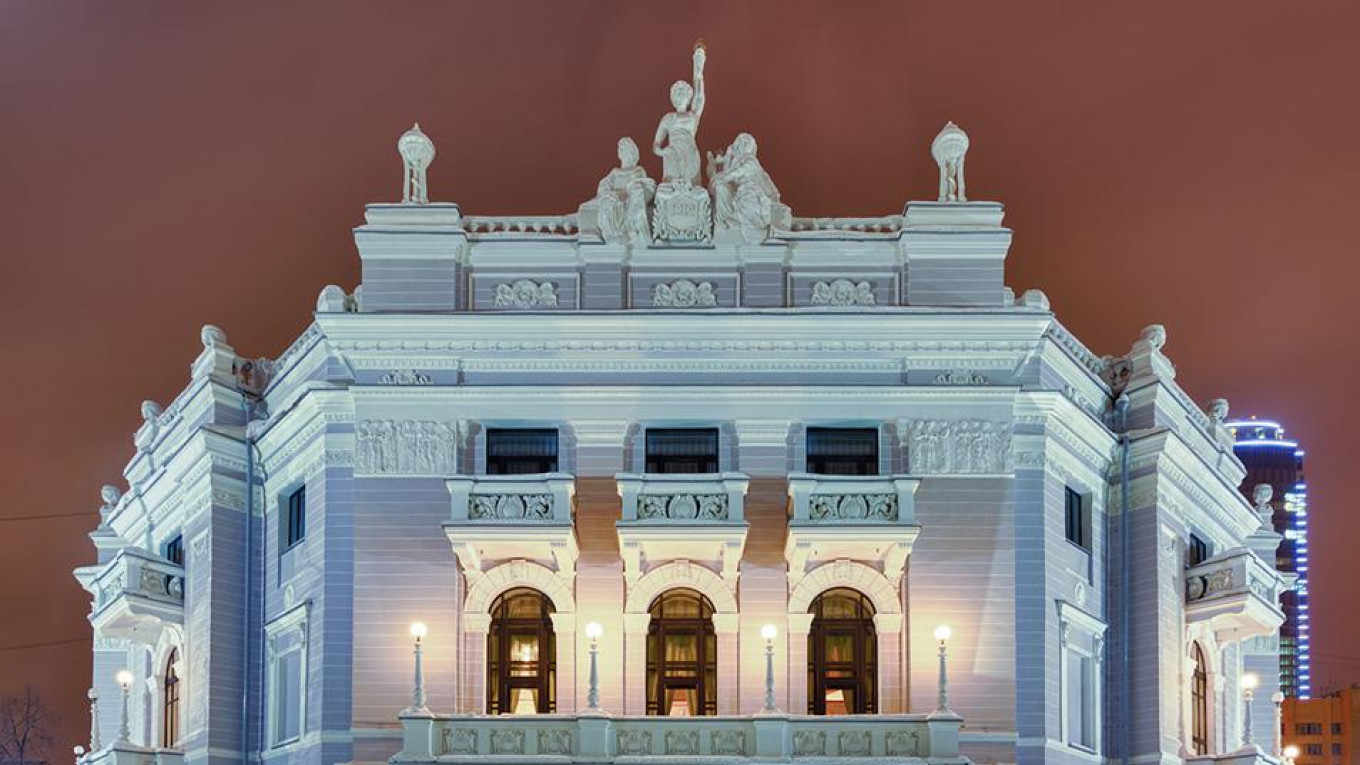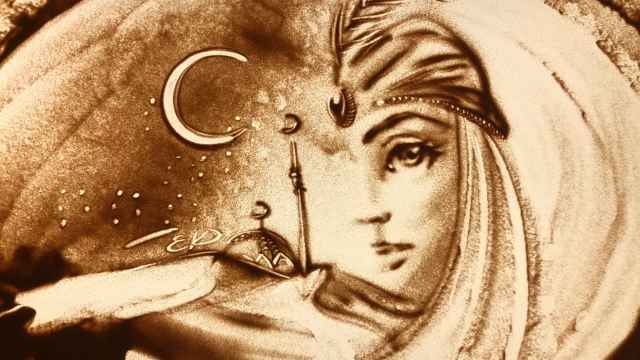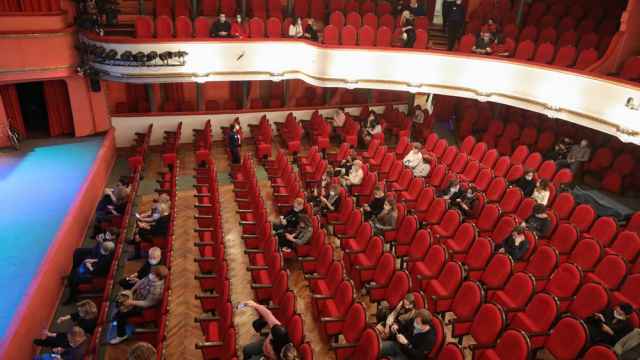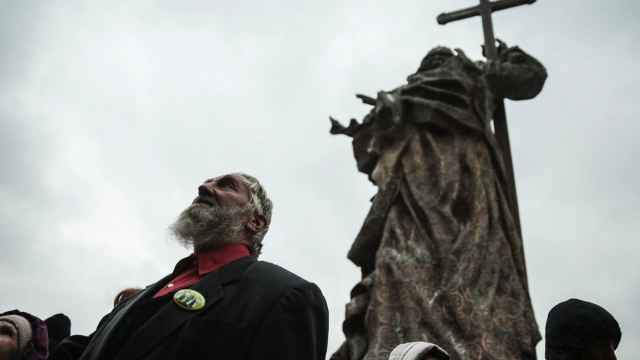In less than a decade, the Yekaterinburg Opera and Ballet Theater has transformed itself from a classic provincial theater into a cutting-edge contemporary venue, where every premiere is a national event and where media from Moscow — and even abroad — come to watch. We talked to director Andrei Shishkin about the theater’s success and the trilogy of operas that was instrumental to it: “Satyagraha,” “The Passenger” and “The Greek Passion.”
“Satyagraha” was your first national hit. why this particular opera?
I’d been thinking about doing Philip Glass’ opera “Satyagraha,” based on the life of Mahatma Gandhi, for a long time. I’d been to India 14 times by then. I first went to India back in 1992 and I met some Krishnaites at the airport in New Delhi who told me I should go visit Vrindavan on my next trip — there are 5,000 temples there. I visited it and then I started reading “The Bhagavad Gita” and Nicholas Roerich. I’ve been fascinated with India ever since.
How did you go about finding the director and conductor?
At one point during a work meeting in my office I put the music from “Satyagraha” on and some of my colleagues asked to move away from the music because they “couldn’t listen to it anymore.” That’s when I realized they were not the people I needed, and I started searching for new people to do this with. Soon after, I was in the Netherlands and met with an agent. I told him about my dream of producing “Satyagraha,” and the next day he took me to the library at the Dutch National Opera, where we met with someone who had actually worked with Philip Glass on the first production of “Satyagraha” and had all the necessary contacts.
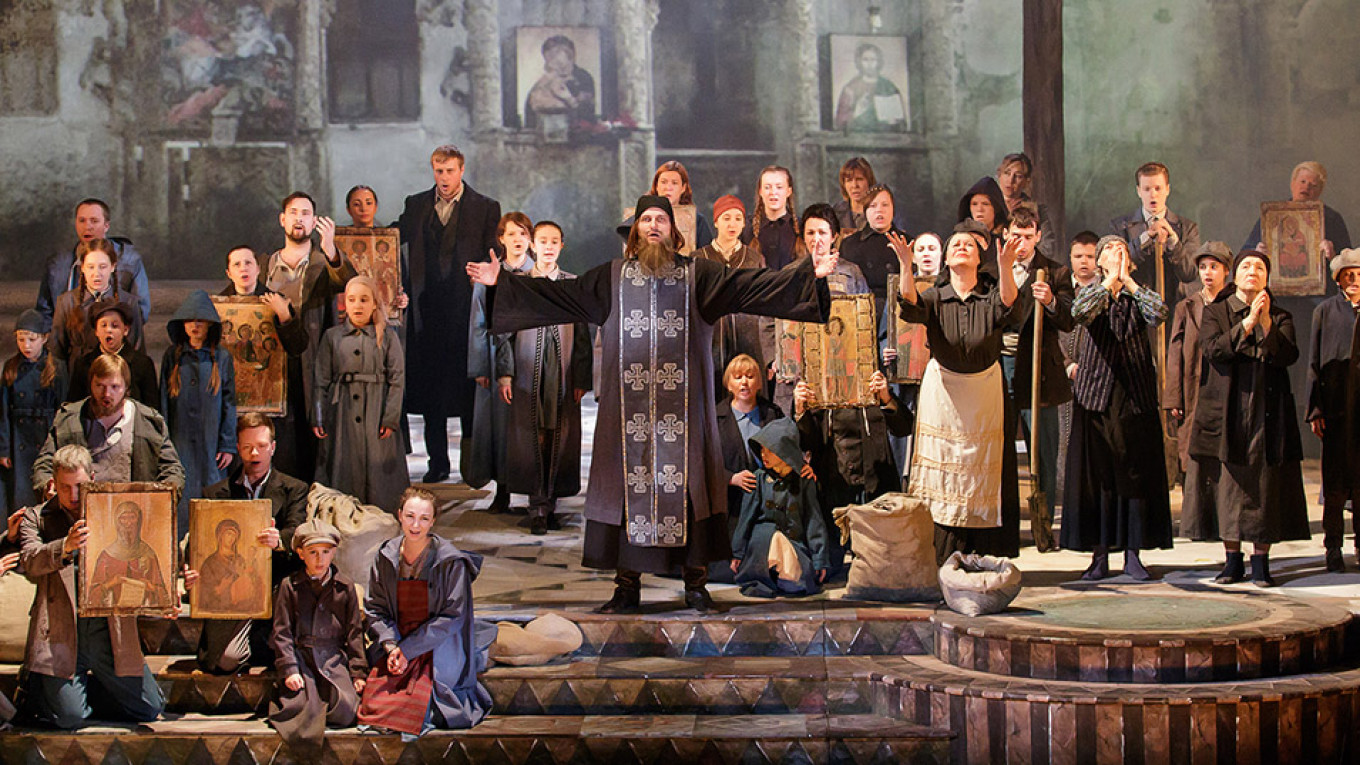
How did you pick the director and conductor?
Our agent Alex Grigoriev provided us with quite a few links to different directors and conductors. We started with a conductor. We just went through them, watching videos of their performances; eventually we decided on Slovak conductor Oliver von Dohnanyi. He already had experience with music by Philip Glass and knew him personally. We wrote to him and he agreed [to work with us]. Then we picked Thaddeus Strassberger from the U.S. as our director.
How was the opera received by the public?
Producing “Satyagraha” was rather risky; I had a lot riding on it. It’s unfamiliar music, there are no arias, no regular plot, no hero or anti-hero, no victims and no corpses — none of classical opera’s usual features. Plus, people were unfamiliar with the story — someone at the booking office asked, “Who is Mahatma Gandhi? Is he the son of Indira Gandhi?”
I was hesitant to issue the directive to start working on the opera, because there was a line “opera is performed in Sanskrit” in it. But my colleagues embraced the challenge and the premiere really piqued the interest of national media.
How did you convince dohnanyi and strassberger to stay for two more operas?
That’s not how it went down, actually. We invited them both just for “Satyagraha.” But since it was such a resounding success, my team and I started looking for a new potential hit project. By that time Oliver von Dohnanyi had become our in-house conductor. We considered many options, but I finally set my sights on “The Passenger,” an unusual Holocaust-themed opera. It was suggested by Oliver, as he had seen it before. I started watching previous productions, reading the play, then eventually I went to see Auschwitz and met with Zofia Posmysz, the author of the play and a Holocaust survivor. After that, we started thinking about a possible director and our choice was once again Thaddeus Strassberger.
And what’s the story behind the last part of the trilogy, “the greek passion”?
It’s not really a trilogy — the term is more of a PR concept. It’s just that we realized the theater was starting to get a certain image and needed to produce something just as good as the previous two hits. I knew Nikos Kazantzakis as the author of “The Last Temptation of Christ.” That was one of the reasons I considered “The Greek Passion,” based on another of his novels, “Christ Recrucified.” I went to Greece and contacted the local Orthodox Church to ask for some consulting help. They didn’t respond for a while, but then they did and it turned out they were reading Kazantzakis’ novel. As a result, Father Veniamin consulted with us throughout the production; he’s extremely well-read. So there you have it — a trilogy!
Prospekt Lenina, 46a uralopera.ru
A Message from The Moscow Times:
Dear readers,
We are facing unprecedented challenges. Russia's Prosecutor General's Office has designated The Moscow Times as an "undesirable" organization, criminalizing our work and putting our staff at risk of prosecution. This follows our earlier unjust labeling as a "foreign agent."
These actions are direct attempts to silence independent journalism in Russia. The authorities claim our work "discredits the decisions of the Russian leadership." We see things differently: we strive to provide accurate, unbiased reporting on Russia.
We, the journalists of The Moscow Times, refuse to be silenced. But to continue our work, we need your help.
Your support, no matter how small, makes a world of difference. If you can, please support us monthly starting from just $2. It's quick to set up, and every contribution makes a significant impact.
By supporting The Moscow Times, you're defending open, independent journalism in the face of repression. Thank you for standing with us.
Remind me later.


